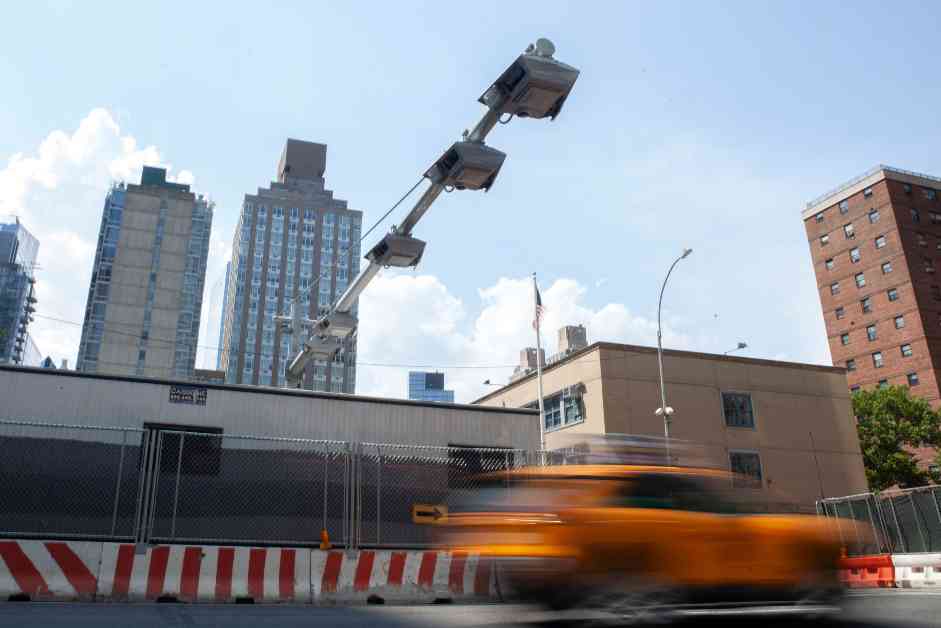Congestion Pricing Lawsuits Head to Court This Friday
Nearly three months after the planned implementation of congestion pricing in New York City, legal battles are set to unfold this Friday as lawyers challenge Governor Kathy Hochul’s decision to halt the vehicle-tolling program. Oral arguments will take place in Manhattan Supreme Court in two separate lawsuits aimed at reinstating the Central Business District Tolling Program, which was abruptly paused by the governor just weeks before its scheduled launch on June 30.
Written into law in 2019 by Albany legislators, the congestion pricing plan was designed to generate revenue for public transportation while potentially reducing vehicle traffic and emissions in Manhattan below 60th Street. The sudden halt to the program sparked outrage among environmental and transit advocates, as well as a civic association, who filed two lawsuits against Governor Hochul in July. They accused her of a “financially disastrous” reversal on an initiative she had previously supported.
Dror Ladin, a senior attorney for Earthjustice representing the environmental and transit advocates, emphasized the urgency of overturning the congestion pricing pause to prevent an increase in greenhouse gas emissions and maintain progress towards a cleaner environment. The impact of Hochul’s decision was significant, causing a $16.5 billion shortfall in the Metropolitan Transportation Authority’s capital program for 2020-2024. This forced the transit agency to postpone crucial improvements such as elevator installations, signal upgrades, and the procurement of new electric buses.
The Legal Battle Unfolds
The lawsuits against Governor Hochul, one filed by environmental and transit advocates and the other by the City Club of New York, are scheduled for oral arguments before Manhattan Supreme Court Justice Arthur Engoron on Friday. The environmental advocates’ suit accuses Hochul of violating climate legislation and constitutional rights related to environmental protection, while the City Club’s suit alleges a breach of the Traffic Mobility Act that mandated congestion pricing.
Hochul’s decision to pause congestion pricing came as a surprise to many, especially considering her previous support for similar initiatives in other cities. Just weeks before the program was put on hold, she had praised congestion pricing at an international summit, citing the success of similar programs in London, Milan, Stockholm, and Singapore. However, she later cited concerns about the impact of tolls on working-class New Yorkers as the reason for the pause.
Despite the backlash, Governor Hochul has reiterated her commitment to finding alternative solutions to fund the MTA’s capital program and support infrastructure projects. She has promised to announce a replacement for the congestion pricing program by the end of the year, following the upcoming elections. In the meantime, protests against the pause continue, with advocates urging Hochul to prioritize accessibility and transit improvements.
The Road Ahead
As the legal battle over congestion pricing unfolds in court, stakeholders remain hopeful that a resolution will be reached to address the funding gaps and infrastructure needs of the MTA. The outcome of the lawsuits will have far-reaching implications for public transportation, environmental sustainability, and urban mobility in New York City.
While Governor Hochul’s decision to pause congestion pricing has created uncertainty and financial challenges for the MTA, there is optimism that a path forward will emerge through legal proceedings and advocacy efforts. The need for sustainable transportation solutions and equitable access to public transit remains a top priority for New Yorkers, who rely on the MTA for their daily commutes and essential travel.
In the coming days and weeks, the legal battle over congestion pricing will continue to unfold, with stakeholders closely monitoring the proceedings and advocating for a swift resolution. The outcome of the lawsuits will shape the future of transportation policy in New York City and set a precedent for addressing environmental challenges and infrastructure needs in urban centers.

